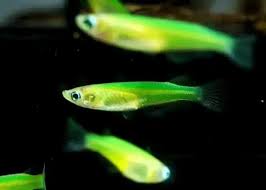
The Qing Dynasty, the last imperial dynasty of China, ruled from 1644 to 1912, shaping the nation for nearly three centuries. Its downfall marked the end of over two thousand years of imperial rule, ushering in the era of the Republic of China. Despite the abolition of the monarchy, the legacy of the Qing Dynasty continues to influence modern Chinese society, and its descendants still hold a unique position in Chinese history.
This article explores the lives and roles of the descendants of the Qing Dynasty today, their historical significance, and how they are involved in modern-day China. It examines how the once mighty imperial family has adapted to a new era, the ways in which they preserve their legacy, and their place in contemporary Chinese society.
The Qing Dynasty’s Fall and the End of the Imperial System
The Qing Dynasty came to an end with the Xinhai Revolution in 1911, which resulted in the abdication of the last Qing emperor, Puyi, and the establishment of the Republic of China. The fall of the Qing marked a momentous shift from feudal monarchy to republicanism. After the revolution, Puyi and the imperial family lost their political power and were forced to live under much different conditions from their previous luxurious lifestyle.
However, the end of the Qing Dynasty did not mean the end of its legacy. While the family no longer held any governmental power, it still played a significant role in Chinese culture, history, and even in international relations. The descendants of the Qing royal family, now living as private citizens, have maintained their heritage, often preserving the traditions of their ancestors and contributing to Chinese society in various ways.
The Life of the Last Emperor: Puyi’s Fate After the Fall of the Qing Dynasty
The most well-known descendant of the Qing Dynasty is Puyi, the last emperor of China. Born in 1906, Puyi ascended to the throne at the tender age of two after the death of his predecessor, Empress Dowager Cixi’s influence had waned. Puyi’s reign was largely symbolic, as the Qing Dynasty was already weakening. His imperial rule lasted only a few years before he was forced to abdicate in 1912 following the revolution that ended over two thousand years of imperial rule.
Puyi’s life after the fall of the Qing Dynasty was tumultuous and marked by several significant periods:
- Post-Abdication Life: After his abdication, Puyi lived in the Forbidden City for several years under the new Republican government. He was given a pension and was allowed to keep his title as emperor but had little actual power.
- The Manchukuo Period: In 1932, Puyi was manipulated by the Japanese into becoming the puppet emperor of the Japanese-occupied state of Manchukuo. His reign here, however, was essentially a façade, as real power was held by the Japanese military.
- Imprisonment: After World War II, Puyi was captured by the Soviet Red Army and later handed over to the newly formed Chinese Communist government. He was imprisoned for almost a decade, undergoing political re-education. Puyi was released in 1959 and lived the remainder of his life as a private citizen. He died in 1967 at the age of 61.
While Puyi’s life was dramatic and filled with tragedy, his descendants, notably his extended family, continued to live on. His direct descendants, however, faced difficulties in adapting to life in post-revolutionary China.
The Role of Puyi’s Family in Contemporary China
Today, the descendants of the Qing royal family live relatively private lives. Most have moved away from the limelight, focusing on their personal pursuits or preserving the legacy of their ancestors. Many of Puyi’s descendants, including his brothers, cousins, and other relatives, have contributed to Chinese society in various ways, though their status and influence are no longer akin to that of their imperial forebears.
The Sons of Puyi
Puyi’s direct descendants include his children, of whom he had several wives and concubines. However, after his forced abdication and subsequent downfall, Puyi had limited opportunities to raise a traditional royal family, and his offspring did not take on any official royal duties. For much of their lives, the family struggled to adapt to the new societal structure under the Communist Party of China.
Puyi’s son, Aisin Gioro Pujie, who was born in 1922, lived a life similar to his father’s, marked by personal hardship and political changes. After the fall of Manchukuo and his father’s imprisonment, Pujie lived in obscurity. Later, after receiving an education and some degree of acceptance within Chinese society, Pujie worked as an academic and historian, writing about his family’s legacy. He passed away in 1994.
Other Descendants in Modern China
The descendants of other key members of the Qing imperial family, such as Empress Dowager Cixi’s family and other high-ranking nobles, also live in China today, though many of them lead private lives far removed from politics. Some descendants of the Qing imperial family have taken up roles as academics, cultural preservationists, and even entrepreneurs.
In terms of societal stature, these descendants no longer hold any political power or influence in the traditional sense. However, their rich heritage and ancestral connections to the last imperial family of China still command respect in certain circles.
The Qing Royal Family’s Legacy and Influence Today
While the Qing Dynasty has long since fallen, its legacy still reverberates throughout modern Chinese society. The descendants of the imperial family, though no longer politically active, maintain cultural and historical significance in China. Their family history is deeply intertwined with the nation’s past, and they serve as living reminders of China’s imperial legacy.
Preservation of Cultural Heritage
One of the most important roles that the descendants of the Qing family play today is in the preservation of China’s imperial heritage. Many descendants of the Qing royal family are involved in cultural preservation efforts, ensuring that the history and artifacts of the Qing Dynasty remain intact. They often serve as custodians of important family heirlooms, royal documents, and other artifacts, which are frequently displayed in museums or studied by historians.
Some descendants have also maintained the family’s historical records and documents, making them valuable sources for understanding the last days of the Qing Dynasty. Their contributions to historical scholarship are invaluable for understanding the period, especially given their direct ties to the imperial family.
Contributions to Modern Society
In the modern era, some descendants of the Qing imperial family have entered professional fields such as business, academia, and the arts. For instance, some have used their historical knowledge and connections to help bridge the gap between China’s imperial past and its modern-day culture. Others have contributed to the global understanding of Chinese history, particularly through writing and research about the Qing Dynasty’s cultural and political influences.
Additionally, members of the Qing family have played roles in various international initiatives, such as diplomacy and cultural exchange. Their status as descendants of the last ruling imperial family allows them to act as symbolic figures, helping to maintain cultural ties between China and the rest of the world.
The Qing Royal Family in Contemporary Culture and Media
The Qing Dynasty’s legacy has had a profound impact on Chinese popular culture, and the descendants of the Qing family are often featured in various media forms. Television dramas, historical films, and documentaries about the Qing Dynasty and its last emperor, Puyi, continue to captivate audiences worldwide. Many of these media portrayals of the Qing royal family help keep their story alive in the collective memory of both Chinese citizens and people across the globe.
In particular, the life of Puyi has been the subject of numerous films, such as the 1987 movie The Last Emperor, which won nine Academy Awards. This film brought attention to the downfall of the Qing Dynasty and the life of Puyi, adding to the ongoing fascination with the last emperor and his descendants. As a result, the descendants of the Qing family occasionally find themselves in the public eye, their royal heritage portrayed as an important part of Chinese history.
Conclusion: The Enduring Legacy of the Qing Dynasty’s Descendants
Though the Qing Dynasty has long since fallen, the descendants of its royal family continue to be a significant part of China’s historical and cultural landscape. While they no longer hold any official political power, their contributions to the preservation of Chinese heritage and their roles in contemporary Chinese society serve as a reminder of China’s imperial past.
The Qing royal family’s legacy is one of grandeur, tragedy, and adaptation. The descendants of the Qing emperors, who once held immense power, now find themselves part of a new chapter in Chinese history. Yet, their connection to one of China’s most famous dynasties ensures that their story will continue to captivate the imagination of future generations. Whether through historical research, cultural preservation, or contributions to modern Chinese society, the descendants of the Qing royal family will undoubtedly remain an important part of China’s evolving narrative.









